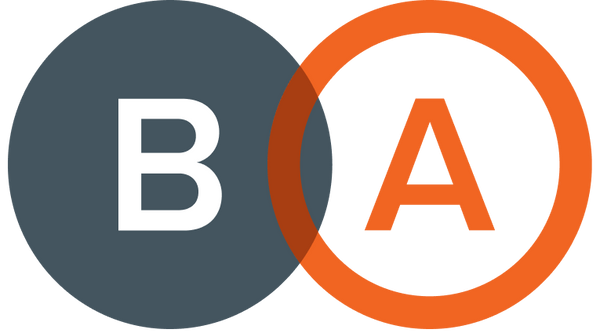At Something Digital 2024 "Empowering Every Human", the BA team took away many learnings and insights. The first session we’ve summarised for our audience is:
Skilling and Reskilling: Managing the Ever-Changing Digital Career.
This was an insightful panel discussion featuring:
Sarah Pollard, Digital Product Development Lead, BHP Billiton;
Simon Clarke, Digital Strategy & CX Lead, Suncorp Bank;
Hannah Russel, Head of Engineering, Seek.
Our summary includes a combination of the BA teams' personal takeaways. We've combined them into a set of shared learnings and tangible work-related themes and actionables.
Navigating Digital Career Development in the Modern Era
In today’s fast-paced digital landscape, career growth has evolved significantly. No longer confined to mastering a single discipline, career development now demands a blend of technical and soft skills, creative thinking, and a willingness to take risks. This paradigm shift requires both organisations and individuals to approach skill-building and career progression with a flexible and forward-thinking mindset.
The panel discussion on digital career development emphasised the need to balance organisational goals with personal growth. It provided key insights into the modern skills required for success and strategies for fostering development within teams.
The Importance of a Blended Skillset
A key takeaway from the discussion was the growing need for a balanced mix of technical (hard) and soft skills in the digital era. As technology rapidly evolves, so must the skills of those working in the field. It’s no longer enough to be proficient in just one area; professionals must be adaptable, with the ability to work across multiple domains.
A prominent example is the development of T-shaped skills, a concept that encourages professionals to build deep expertise in one area while gaining a broad understanding of adjacent disciplines. This approach fosters collaboration and allows individuals to contribute effectively to multidisciplinary teams.
In addition to technical expertise, design thinking and problem-solving capabilities have become crucial. Employees are encouraged to deeply understand problems before jumping to solutions, ensuring that their approach is data-driven and aligned with real-world needs. Equally important is the ability to influence and inspire others through storytelling and data-driven decision-making. These soft skills are essential for translating technical insights into actionable business strategies, especially when decisions need to be communicated across various levels of an organisation.
Structured Learning Models
To manage the constant change in digital skills, many organisations are adopting structured learning frameworks. The 70-20-10 learning model, which divides learning into 70% on-the-job experience, 20% interaction and networking, and 10% formal education, is one such model that has gained popularity. This approach ensures that learning is integrated into daily work activities, fostering growth without overwhelming employees with extra responsibilities.
Another popular framework involves mastery programs, where employees can focus on specific skill areas, progressing from basic to advanced levels. In digital teams, these mastery programs often include curriculum-based training in areas like AI, behavioural economics, or UX design, followed by opportunities to apply that knowledge through projects.
However, a common challenge discussed by the panel was the issue of time. Employees often struggle to find time for learning amidst their daily responsibilities. One speaker emphasised the importance of viewing skill development as an investment in the future, rather than as an additional burden. Prioritising learning and recognising its long-term benefits is essential for continued career growth.
Career Progression and Mobility
As the digital landscape evolves, so do career trajectories. Unlike traditional career ladders, where employees progress linearly through predefined roles, digital professionals now experience more dynamic paths. The panel highlighted the importance of mobility within teams, allowing professionals to move between roles—such as from platform engineering to product development. This broadens their skillsets, making them more versatile and valuable to their organisations.
Organisations are encouraged to support this type of career growth by providing opportunities for employees to explore new areas, even if it means stepping outside their comfort zones. This might include giving engineers the chance to work on product management or encouraging team members to switch between various engineering disciplines.
The panel also stressed the importance of ownership and accountability in career growth. Employees who take responsibility for their own development—by seeking out resources like LinkedIn Learning or Medium—are more likely to succeed. Engaging in peer learning through mentoring or blogging about industry trends also helps professionals build a public profile while sharing knowledge with the wider community.
The Role of Creativity and Risk-Taking
In an era where change is the only constant, a willingness to take risks and embrace creativity is more important than ever. One speaker noted that saying ‘yes’ to new opportunities, even when they fall outside one’s expertise, can lead to unexpected career growth. Experimenting with different technologies or approaches not only broadens one’s skillset but also fosters a mindset of continuous learning.
The panel also touched on the influence of creative industries, such as Disney’s Imagineering concept, on digital innovation. By blending creativity with cutting-edge technology, professionals can develop experiences that are not only functional but also engaging and impactful.
Final Thoughts
The future of digital careers is dynamic and fast-evolving. Success in this environment requires a combination of technical expertise, soft skills, creativity, and a willingness to embrace change. Structured learning programs, cross-team mobility, and a focus on continuous self-improvement will help individuals stay ahead of the curve. Meanwhile, organisations must foster environments that encourage both personal growth and innovation, ensuring that their workforce is prepared for whatever the future holds.
Next Up
Keep a look out for our next Blog in this series as we share summaries from the sessions we were lucky enough to attend this year.
